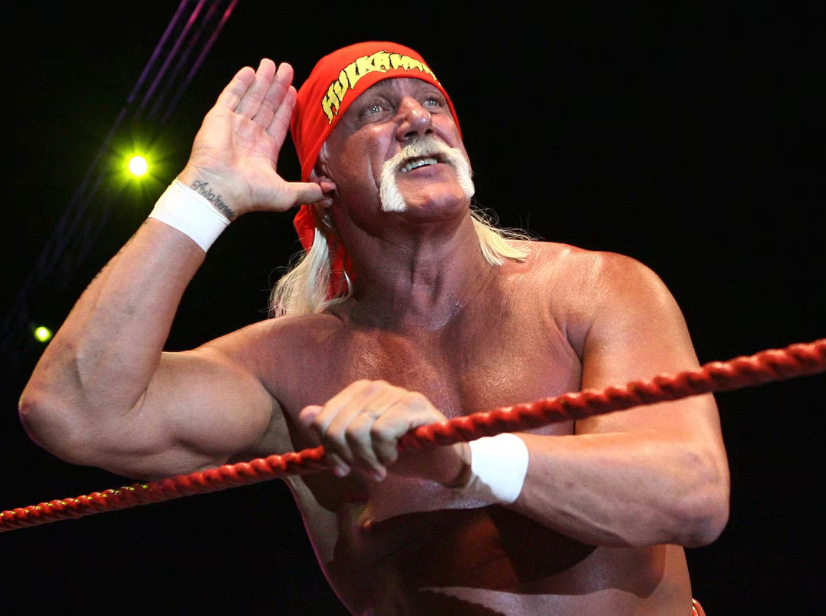
Last year, I got stranded in St. Pete Beach during a hurricane. Technically, it might’ve been a tropical storm, but hurricane sounds sexier, so let’s go with that. I was trying to move my rental car to higher ground, forgetting, of course, that Florida doesn’t have higher ground. On the walk back to my unit, I realized I was officially trapped. Water rising on all sides. The only two places still open were a 7-Eleven and a dive bar. Naturally, I picked the bar.
They had power. Barely. A sputtering generator kept the register alive and, inexplicably, the jukebox. Not an old-school one either. One of those cursed digital ones you control from your phone. For reasons I still don’t fully understand, I kept queuing up “Real American” by Rick Derringer. Yes, the Hulk Hogan song. It felt right. If I was going to die in a flood, I wanted to do it with a cold beer, bad lighting, and the theme music of a shirtless, oiled-up patriot blaring in the background.
That night, I kept thinking about Hulk Hogan. Specifically, first grade. My parents had bought me tickets to a wrestling show at the Boston Garden. The day of the event, I came down with the flu. Not a cute little cough, but full-body chills, fever dreams, teeth-chattering misery. My mom was torn about letting me go, but I had spent all week making a poster board composed of Hulk Hogan cutouts from magazines, glue-sticked together like a shrine.
We were way up in the nosebleeds, practically in another zip code. But when Hogan came out to “Real American,” I held that sign up like it meant something. He pointed in our direction, probably just something he did every night, a vague sweep of the crowd, but I was convinced he saw my poster. I spent the next six weeks bragging about it at school as if I’d been personally knighted by the man in yellow spandex.
Eventually, my wrestling phase fizzled out. But I never fully let go of Hulk Hogan. I kept tabs on his shenanigans. His limp swing at a film career, his turncoat move to WCW, that era where he lost the stache, painted on dyed black stubble and played the bad guy. I was genuinely floored when VH1 handed him a reality show, Hogan Knows Best. Not only did I watch every episode, I stuck around for the spin-off, Brooke Knows Best, which followed his daughter as she tried to become… something. A pop star? A person?
Then there was the American Gladiators reboot he hosted for no real reason, and the short-lived radio talk show he had on one of Howard Stern’s Sirius channels. At that point, he was less a person and more a weird, sun-damaged mascot for a very specific kind of delusion. But I couldn’t look away. Some part of him still held on to the American dream with that do-rag. He was big. He was loud. Tan in all the right places, and full of catchphrases. He flexed, we clapped. He lied, we forgave. By the time he was ranting on satellite radio and fumbling through reality TV, he was just the logical endpoint of a personality that mistakes volume for virtue.
But like most mute icons, he didn’t know when to bow out. He stayed too long, pivoted too hard, tried too many comebacks. From Saturday morning PSAs to grainy sex tapes. From WrestleMania to VH1. He mutated. Fell apart in public. Became something else entirely. Maybe it’s the persistence I admired? The refusal to leave the stage? The way he kept appearing in reruns, documentaries, lawsuits, awkward apologies, and late-night punchlines.
Was a hero? To some, maybe. To me, he was more of a monument to the performative. And whether you loved him, pitied him, or pretended not to remember Hogan’s Knows Best, he stuck around, frozen in a flex, always waiting for the next spotlight. And for that, I salute you.
Rest in peace, brother.